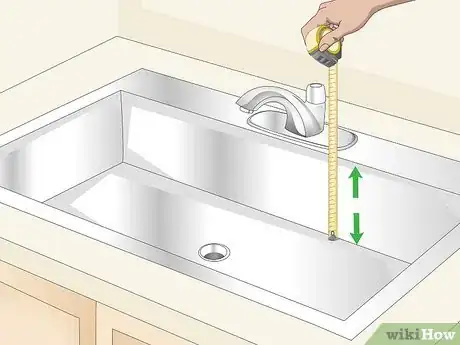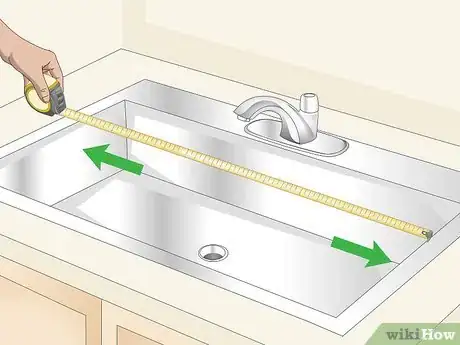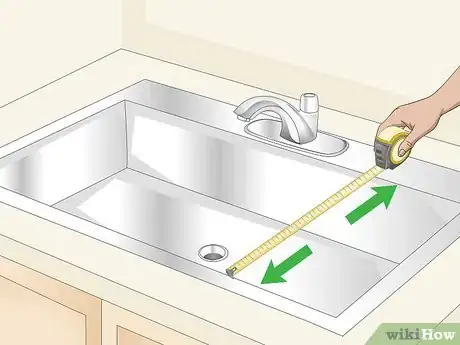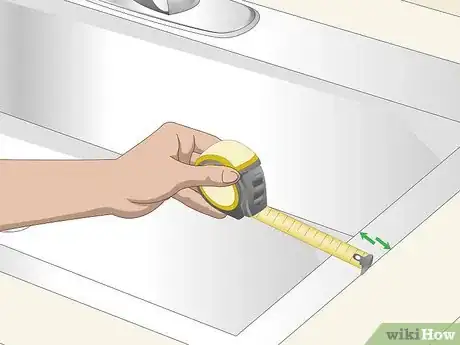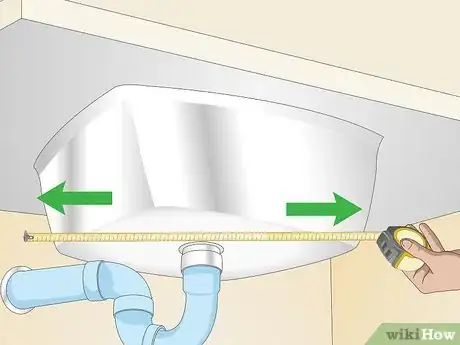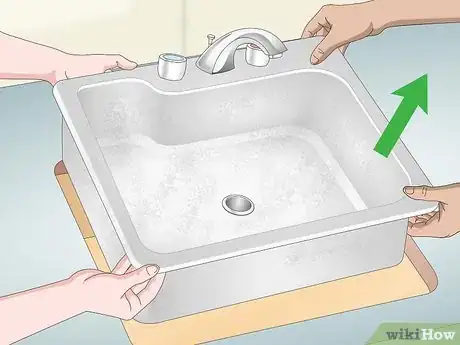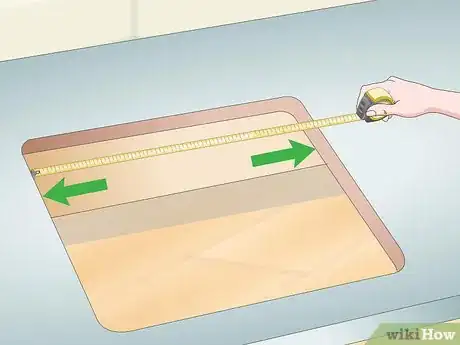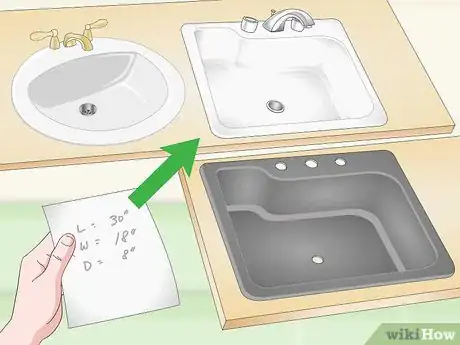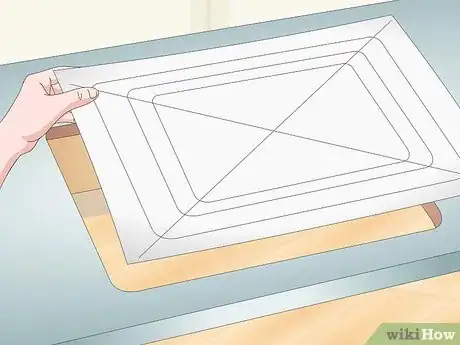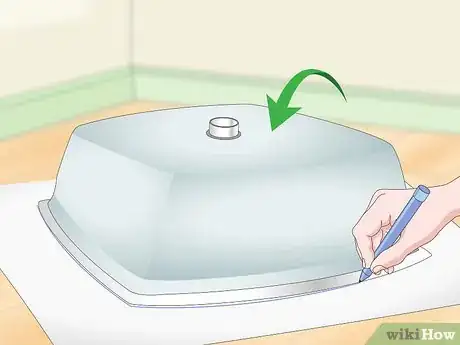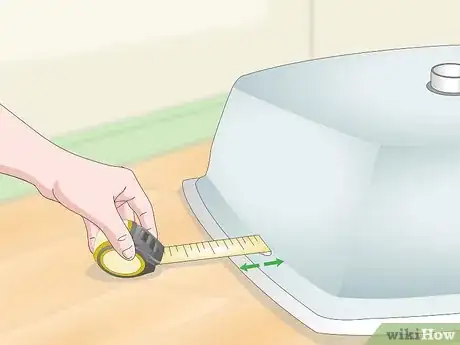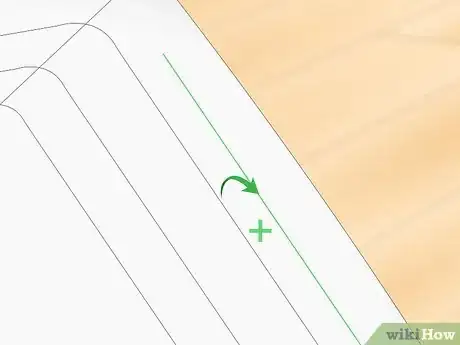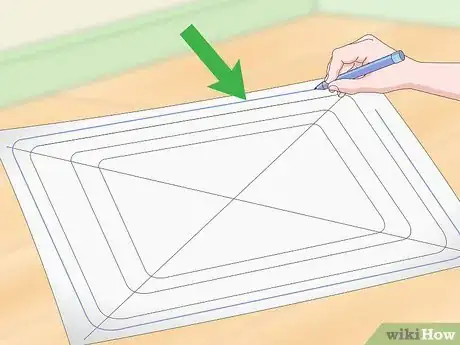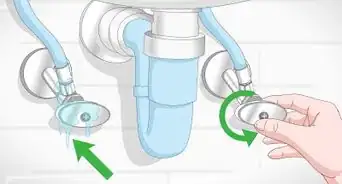This article was co-authored by Mike Katona. Mike Katona is a DIY Home Improvement Specialist and the Co-founder of ShabbyChicHouse. With experience dating back to the early 2000s, he specializes in building new homes, home design, and decor. Mike has been featured in publications such as Real Homes and MSN Lifestyle. He has also been named one of Feedspot's Top 100 Home Improvement Bloggers.
There are 7 references cited in this article, which can be found at the bottom of the page.
This article has been viewed 36,032 times.
When you’re installing a new kitchen sink, taking accurate measurements is a crucial part of the process. If you’re replacing your old sink, you’ll want to first measure the sink and then remove the sink to measure the existing hole that was cut out of your kitchen countertop. If you’re installing new countertops along with your new sink, you’ll want to measure the sink before you cut a hole in your countertop.
Steps
Measuring the Old Sink
-
1
-
2Determine your sink's length from side to side.[3] Press a tape measure against the sink's left bottom edge, slightly higher than where the sink's basin begins to curve. Extend your tape measure and record the length to this same point on the sink's bottom right edge above the curve.[4]Advertisement
-
3
-
4Calculate the width of a top-mount sink's lip.[7] If your sink is a top-mount or drop-in sink, rather than an undermount style, it will have a lip that extends from the sink basin onto the countertop.[8]
- Remove the sink and flip it upside down so that you can measure the lip.
- Place your ruler or tape measure flush against the sink basin and measure to the edge of the lip.
-
5Account for the width of the cabinet opening. Crawl under your sink and measure the distance of the cut-out in your cabinet. Place a tape measure along the underside of your sink and measure from the top left corner of your cabinet to the top right corner. A new sink wider than this measurement won't fit.[9]
Measuring the Countertop Hole
-
1Ask a friend to help you remove the old sink. Being careful not to damage your countertop, work with a friend to disconnect and pull out the old sink so that you can measure the hole left in your countertop. You’ll work under the sink while your friend works above you.[10]
-
2Determine the length and width of your countertop hole. Press the end of a tape measure to the right edge of the hole and measure the length to the left edge. Then measure the hole's width from front to back.
-
3Take your measurements with you to buy a new sink. Compare your measurements to the dimensions listed on the sinks in the store. These dimensions should be printed on the box the new sink comes in. If you can’t find the sink’s dimensions, ask a worker for help.
- Top-mount sinks have a lip that rests on your counter, so it’s ok if the basin measures a bit smaller than the hole.
- Undermount sinks fit into the hole in your countertop, so you want the measurements to match exactly.[11]
Measuring a New Sink when Installing New Countertops
-
1Use a template if one came with your new sink. Most sinks come with a template that you can lay on the countertop and trace with a pencil. Using a template eliminates the need to do much extra measuring.
-
2Make your own template if you don't have one. If your sink didn't come with a template, you can make your own by tracing the outline of your new sink on the countertop.[12]
- Start by placing your sink upside down on your countertop, making sure to leave 1.5 inches (3.8 cm) between the back of the sink and your backsplash.
- Trace an outline of your sink with a pencil or marker, then take it off the counter and put it back on the floor, safely out of your way.
-
3Measure the lip if you have a top-mount sink. Unlike an undermount sink, a top-mount has a lip that spans the gap between the sink basin and countertop, so that the lip sits on top of your counter.[13]
- With the sink turned upside down, place a ruler or tape measure against the basin and measure to the edge of the lip.
-
4Add the lip's width to your template. To get the most accurate measurement, you'll need to account for the lip's width before you finish your template.
- Subtract .125 in (0.32 cm) from the width of the sink lip you measured.
- Mark this measurement inside the outline you've drawn your counter.
-
5Mark your cut lines. Now that you've marked your measurements, use a straightedge to connect the lines you've draw. Now your finished template will serve a guide to cut the countertop to make a hole for your new sink.[14]
References
- ↑ Mike Katona. DIY Home Improvement Specialist. Expert Interview. 25 August 2021.
- ↑ https://www.familyhandyman.com/kitchen/replace-a-sink/view-all/
- ↑ Mike Katona. DIY Home Improvement Specialist. Expert Interview. 25 August 2021.
- ↑ https://www.familyhandyman.com/kitchen/replace-a-sink/view-all/
- ↑ Mike Katona. DIY Home Improvement Specialist. Expert Interview. 25 August 2021.
- ↑ https://www.familyhandyman.com/kitchen/replace-a-sink/view-all/
- ↑ Mike Katona. DIY Home Improvement Specialist. Expert Interview. 25 August 2021.
- ↑ https://www.thekitchn.com/the-6-things-you-need-to-know-about-undermount-kitchen-sinks-166059
- ↑ https://www.familyhandyman.com/kitchen/replace-a-sink/view-all/
- ↑ https://www.bobvila.com/articles/install-kitchen-sink/
- ↑ https://www.thisoldhouse.com/ideas/all-about-farmhouse-sinks
- ↑ https://www.finehomebuilding.com/2014/02/21/how-to-cut-an-opening-for-a-sink-in-a-laminate-counter-top
- ↑ https://www.thekitchn.com/the-6-things-you-need-to-know-about-undermount-kitchen-sinks-166059
- ↑ https://www.thisoldhouse.com/how-to/how-to-install-kitchen-sink
